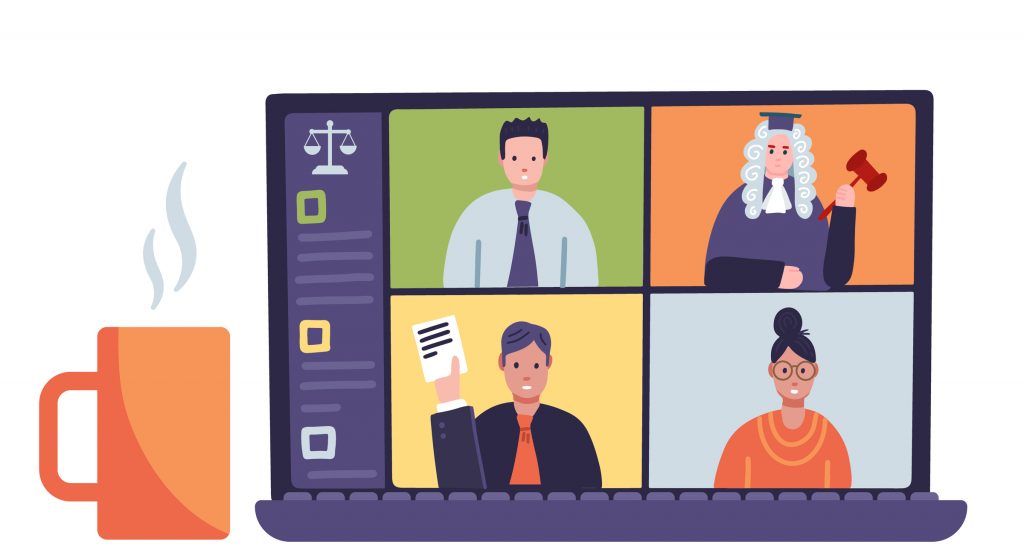The global outbreak of the COVID-19 pandemic affected every aspect of our social and personal life: we have already written about the economic challenges of a post Coronavirus world.
Social distancing measures changed the way Justice works. While global lockdowns initially put a halt on proceedings, legal systems and courts soon found new ways to carry our trials, hearings, and virtual depositions from remote, also recurring to legal interpreting.
Law from Remote Settings
Technical issues, poor preparation, and simple bad luck can happen in any field of remote work. Justice, however, is a fundamental right, and legal proceedings should always be guaranteed and conducted in the best possible conditions.
Dubai’s DIFC Courts were some of the first to implement work-from-home services and remote depositions in March 2020, in an effort to curb the infection curve.
Here are a few helpful tips for people involved in virtual hearings:
1- Agree on Technical Details in Advance
Obvious as it may sound, the best thing you can do to guarantee the success of the deposition is having everyone on the same page in terms of:
• video calling platform (with an internet connection or phone line),
• time and date (taking into account different time zones),
• video setting requirements (any particular dress code or background?).
2- Test Your Platform
During legal proceedings, you might need to present exhibits, share files, or stream what you are viewing on your desktop. Make sure you have the right tools and expertise to do what you need and inform every participant on how these technologies work.
Check your computer’s security and privacy setting: some systems might interfere with your video call and not allow you to share your screen or files.
3- Request Professional Technical Support
You might be tech-savvy and you might have tested every function of the platform, but things can always go wrong. This is why legal video calls should rely on the support of a technical team, to quickly solve any unforeseen issue.
Moreover, you might need to have an interpreter for your hearing or trial in another language. In this case, the language service cannot be improvised, and you will need to contact a qualified professional.
Legal Remote Interpreting Services for Courts
Courts in need of language services for remote depositions look for reliable, hassle-free conference interpretation and strong customer support.
At Langpros, RemoteSimultaneous Interpretation services are integrated with every video calling platform, such as Zoom, Google Meet, Skype, and Microsoft Teams. Trained real time interpreters with a solid grasp of the legal terminology can make it easier for you to do your job anywhere, anytime.
According to the client’s location, judicial system, and video call platform, we offer a completely customized service, liaising with you throughout the duration of the project.
